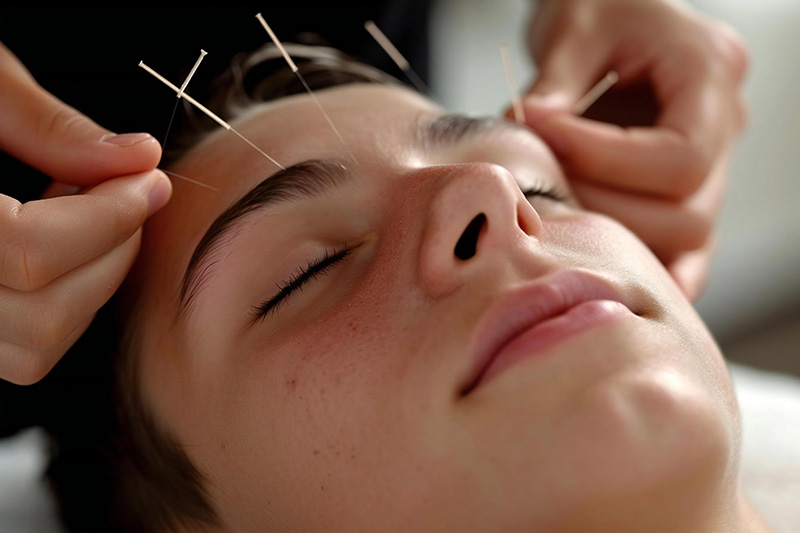Attention Deficit Hyperactivity Disorder (ADHD) is a neurodevelopmental disorder that affects both children and adults, characterized by symptoms such as inattention, hyperactivity, and impulsivity. Traditional treatment options often include behavioral therapy and medication, particularly stimulants. However, an increasing number of individuals are seeking alternative therapies, including acupuncture, as a means to manage ADHD symptoms. This article explores the potential benefits of acupuncture for ADHD treatment, the underlying mechanisms, and the existing research on its efficacy.
Understanding ADHD
ADHD is one of the most common mental health disorders in children, impacting approximately 5-10% of the population. Symptoms can lead to difficulties in academic performance, social interactions, and overall quality of life. While the exact cause of ADHD is still not fully understood, a combination of genetic, environmental, and neurological factors is believed to play a role.
Traditional treatments often focus on pharmacological interventions, which can be effective but may also come with side effects, leading some families to explore complementary and alternative medicine (CAM options).
What is Acupuncture?
Acupuncture is a key component of Traditional Chinese Medicine (TCM) that involves the insertion of fine needles into specific points on the body. The practice is based on the belief that stimulating these points can help balance the body’s energy, or “Qi,” and promote healing.
Mechanisms of Action
The exact mechanisms by which acupuncture may benefit individuals with ADHD are not fully understood, but several theories exist:
 1. Neurotransmitter Regulation: Acupuncture has been shown to influence the release of neurotransmitters such as dopamine and serotonin, which play crucial roles in mood regulation, attention, and behavior. By modulating these chemicals, acupuncture may help improve focus and reduce impulsivity.
1. Neurotransmitter Regulation: Acupuncture has been shown to influence the release of neurotransmitters such as dopamine and serotonin, which play crucial roles in mood regulation, attention, and behavior. By modulating these chemicals, acupuncture may help improve focus and reduce impulsivity.
2. Stress Reduction: Many individuals with ADHD experience heightened stress and anxiety. Acupuncture is known for its calming effects, which can help reduce stress levels and improve overall emotional regulation.
3. Improved Blood Flow: Acupuncture may enhance blood circulation, which can promote better oxygen and nutrient delivery to the brain. Improved brain function may lead to better attention and cognitive performance.
4. Balancing Energy: TCM posits that ADHD symptoms may arise from an imbalance in the body’s energy. Acupuncture aims to restore this balance, potentially alleviating symptoms.
Research on Acupuncture for ADHD
While research on acupuncture as a treatment for ADHD is still emerging, several studies have explored its potential benefits:
1. Clinical Trials: Various clinical trials have investigated acupuncture’s effectiveness in reducing ADHD symptoms. Some studies report significant improvements in attention, hyperactivity, and impulsivity among children receiving acupuncture compared to control groups.
2. Systematic Reviews: A systematic review published in 2017 analyzed multiple studies on the use of acupuncture for ADHD. The review concluded that while the evidence is promising, the quality of studies varies, and more rigorous research is needed to establish definitive conclusions.
3. Case Studies: Individual case studies have reported positive outcomes for children with ADHD who underwent acupuncture treatment. Parents and practitioners observed improvements in behavior, concentration, and emotional well-being following sessions.
4. Complementary Approaches: Some practitioners advocate for a combined approach, using acupuncture alongside conventional treatments. This integrative method may provide a holistic solution for managing ADHD symptoms.
The Role of Acupuncture in a Holistic Approach
Acupuncture should not be viewed as a standalone treatment but as part of a comprehensive approach to managing ADHD. A holistic strategy may include:
 1. Diet and Nutrition: A balanced diet rich in omega-3 fatty acids, antioxidants, and essential vitamins can support brain health and improve attention.
1. Diet and Nutrition: A balanced diet rich in omega-3 fatty acids, antioxidants, and essential vitamins can support brain health and improve attention.
2. Exercise: Physical activity is beneficial for all individuals, particularly those with ADHD. Exercise can help regulate mood, energy levels, and focus.
3. Mindfulness and Relaxation Techniques: Practices such as yoga, meditation, and deep breathing exercises can complement acupuncture by promoting relaxation and reducing stress.
4. Behavioral Therapy: Working with a therapist who specializes in ADHD can provide additional strategies for managing symptoms and improving coping skills.
Considerations and Safety
While acupuncture is generally considered safe when performed by a qualified practitioner, it is essential to approach treatment with caution. Individuals seeking acupuncture for ADHD should:
1. Consult with a Healthcare Provider: Before starting any new treatment, consult with a healthcare provider to discuss potential benefits
Conclusion
 Acupuncture presents a promising alternative treatment option for individuals with ADHD. While research is still developing, many individuals report positive outcomes from acupuncture therapy. It is essential to consider acupuncture as part of a comprehensive treatment plan that includes traditional therapies, lifestyle changes, and supportive practices. As interest in holistic and integrative approaches to ADHD continues to grow, acupuncture may become an increasingly popular choice for those seeking relief from symptoms.
Acupuncture presents a promising alternative treatment option for individuals with ADHD. While research is still developing, many individuals report positive outcomes from acupuncture therapy. It is essential to consider acupuncture as part of a comprehensive treatment plan that includes traditional therapies, lifestyle changes, and supportive practices. As interest in holistic and integrative approaches to ADHD continues to grow, acupuncture may become an increasingly popular choice for those seeking relief from symptoms.
As always, further research is needed to validate and understand the effectiveness of acupuncture in treating ADHD, but its potential benefits warrant consideration in the broader conversation about managing this complex disorder.

Lee Schwalb is a licensed acupuncturist in New York City with over 20 years of clinical experience, treating a broad range of health issues, from idiopathic pain and acute injuries to stress, anxiety and many other conditions.


